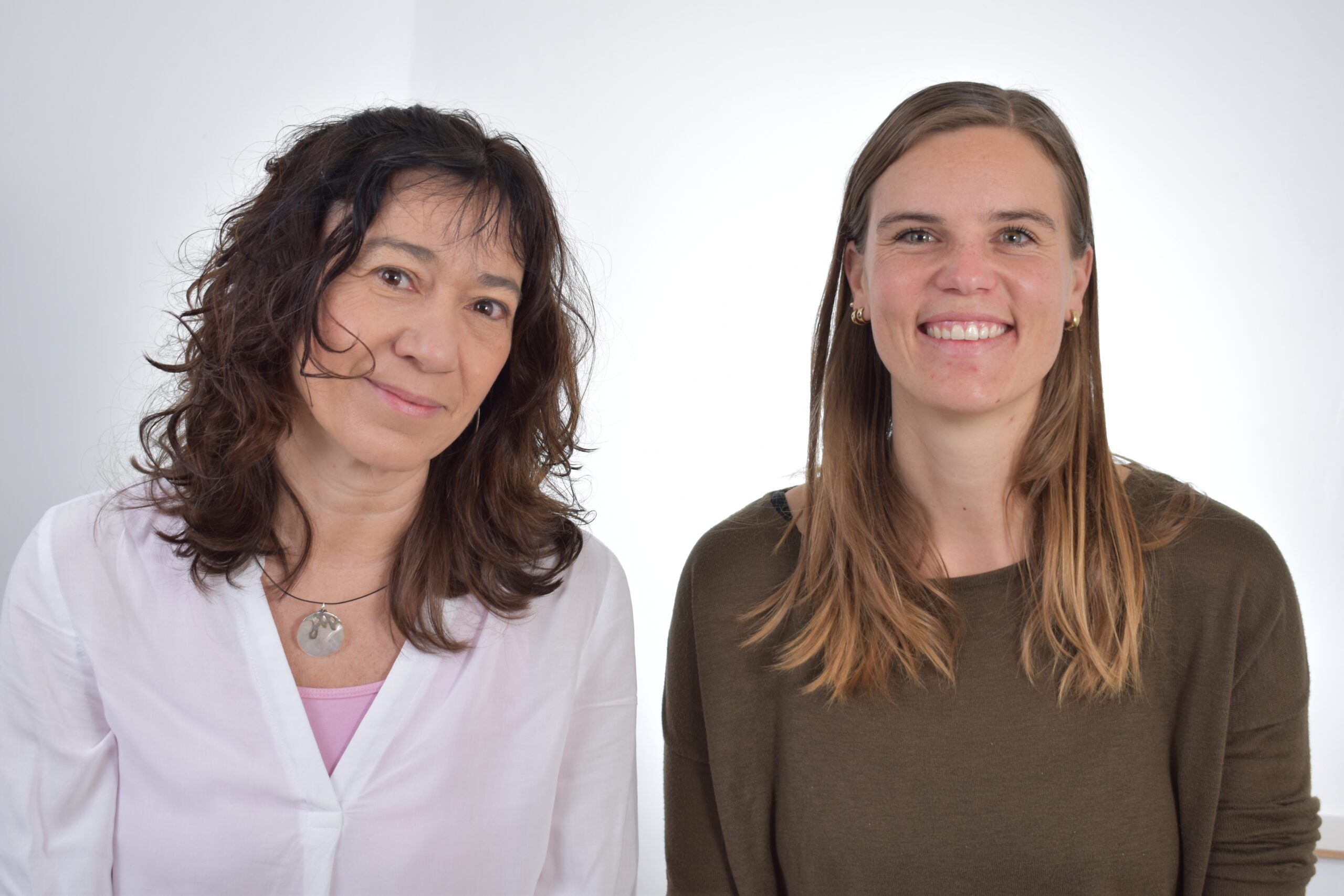School
A greeting from the Primary School
As the primary school team, we would like to warmly welcome you, dear parents and you, dear students, to our primary school side of the German School Nairobi! Karibuni!
It is a particular concern for us in the long run to create a stimulating, interesting and enriching play, learning and work environment at our school, which not only smooths the way for an academic home, but also ensures excellent education with a very well educated international teaching staff.
We at the German School Nairobi are proud of the variety of our cultural encounters and would like to grant you all a special place in our community, which takes into account your individual strengths and interests in one big group - the WIR.
The WIR, our guiding principle for educational matters, which is dear to our hearts,
- W Worldwide cosmopolitanism
- I Interest
- R Respect
doesn’t just emphasize our intercultural openness, but also provides the foundation for a respectful and trusting togetherness. We would like to give you a clear virtual insight on our homepage and look forward to meeting you for real!
Your primary school team
Carolina John & Heike Czech
About Us
The students and teachers of the DSN primary school welcome you!
Currently, many children from various nations attend grades 1 to 4. They are taught by enthusiatic teachers using the Thüringer teaching plan in a holistic, community-driven and future-orientated way. Numerous hardworking interns and many engaged parents fortunately support us on our way through the varied school year.
Each child has the right to individual support here. They can all experience successes here and feel the closeness of the school community. We very much value encouraging our students - as only encouraged children become responsible adults.
School assemblies, which take place regularly, give us the opportunity to try things out, convey information, commend people, participate in international campaigns and see ourselves as a community. We see involvement in the school and the community as preparation for a self-determined life.
We have put together some information for you to let you know about school life at our primary school. We hope that it will help you to seamlessly settle in to our school community and feel welcomed to wonderful Nairobi.
The Primary School Team
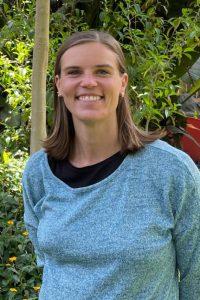
John, Carolina
headofprimary@germanschool.co.ke
carolina.john@germanschool.co.ke
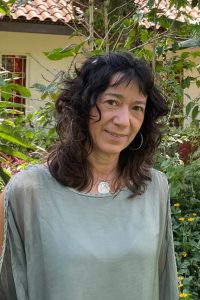
Czech, Heike
Heike.Czech@germanschool.co.ke
Schedule and Program
Schedule
| Time | Contents |
|---|---|
| 7:45 – 13:05 | Lessons (1st-6th period) |
| 13:05 – 14:00 | Afternoon Break |
| 14:00 – 15:30 | Study groups and Ateliers |
Lesson plan
| Academic subject | Cl. 1 | Cl. 2 | Cl. 3 | Cl. 4 |
|---|---|---|---|---|
| German | 10 | 8 | 7 | 7 |
| Mathematics | 6 | 6 | 6 | 6 |
| Science | 2 | 3 | 3 | 3 |
| English | 2 | 3 | 3 | 3 |
| Sports | 3 | 3 | 3 | 3 |
| Art | 2 | 2 | 2 | 2 |
| Textile Design | 1 | 1 | 0 | 0 |
| Music | 2 | 2 | 2 | 2 |
| Religion / Ethics | 1/1 | 1/1 | 2/2 | 2/2 |
| Computers | 1 | 1 | ||
| Class Hour | 1 | 1 | 1 | 1 |
| Total | 30 | 30 | 30 | 30 |
From Monday to Thursday, our "language bath" takes place for 20 minutes during one class period. During these 20 minutes, the children immerse themselves in the German language. The language bath is intended to enable the children to speak the German language in a special way.
Classrooms & Schoolyard
In our primary school block, five of our six primary school classes are taught. Not far from this, right around the corner and with a view of the other building is the sixth classroom. The rooms are large and bright in relation to the class sizes and grades. Each classroom is lovingly and comfortably furnished by the relevant class teaching staff so that the students feel comfortable and at home. Each class also has a group work room, which gives them the opportunity to differentiate. In good weather, children can also feel free to use the workplaces outdoors. There are subject teaching rooms available for music, art/textile design and IT.
In the primary school block, we also have our school nurse’s office on the ground floor and the primary school management office on the 1st floor. Thus, all the rooms are close to one another and they can all be reached quickly.
Between the primary school building and the cafeteria is the primary school schoolyard. Next to a paved play area with a climbing tube and a brightly coloured climbing wall, the students have access to a field with balancing poles, the basketball court and of course the playground. Thus there is enough space for running around and having fun. Our rotating carousel is very popular with the children, a new attraction for them every day!
Certificates
The German School Nairobi primary school is subject to the following certificate regulations:
Class 1:
At the end of the 1st grade, each child receives a report certificate. Their working and social behavior is assessed, as well as their learning development and their performance in the individual subjects.
Class 2:
At the end of the first and second semester, each child receives a report certificate. Their working and social behavior is assessed, as well as their learning development and their performance in the individual subjects.
Classes 3 and 4:
In grades 3 and 4, all the children get a grade certificate at the end of the semester and at the end of the school year. The working and social behavior is assessed with a value report.
Since the 2019/20 school year, the verbal assessments are made on the certificate for skills, with the teacher crossing the relevant grade for learning and learning development.
Special Activities
A particular activity that we try to carry out every year whenever we have the time, is a visit to the old people’s home “Mji wa Huruma” on the border with Runda. This excursion generally takes place either shortly before the Christmas holidays or shortly before the Easter holidays. Inspired by the “Christmas in a shoebox” campaign, the primary school pupils pack a box full of useful objects, such as a toothbrush and toothpaste or soap, for the old people. Each student can decide whether they want to pack the items for a man or a woman. These are then lovingly wrapped and decorated in Art lessons. With the boxes in tow, we then go to the old people’s home together. We are happy to be accompanied there by parents too. Before the gifts are handed over, we all sing for and with the old people, which is always a joy. When they hand over the packed boxes, the children are not shy, they go up to the residents of the old people’s home and communicate with their hands and feet, as most of them do not speak the same language. Satisfied, we then return to school with a positive impression.
On the penultimate day of school in each school year, the primary school hike day takes place. All classes go on a hike together through nature. Sometimes we go to the Karuna Forest, sometimes to the tea fields at Brackenhurst. The teachers are always looking for new destinations. While the children sit with their classes on the bus to make organisation simpler, they soon mix together while hiking. There, the very smallest walk next to the very biggest and all the primary school teachers spread out amongst this lively gaggle. The idea behind this is to reward the children for their work during the school year and to allow them all to spend time together one last time before starting the long summer holidays or having to say goodbye to friends who are moving away. Every year we all look forward to this experience.
Transition from Preschool to Primary School
Most children who join our first grade, attend our bilingual nursery. The first discussions between the nursery and the primary school to prepare for children to start school take place at the start of each year. Primary school teachers spend time in the nursery groups to get to know their new students together with other children in small groups while playing and in conversation, when drawing and when doing crafts. We want to see how naturally the individual children behave in the situations we encounter them in stated above, how they take suggestions and encounter age-appropriate language situations. We pay particular attention to the linguistic skills of the children starting school.
As our school has lots of children who are growing up bilingual, the primary school values qualified German and English teaching. For children who are not native German speakers, German as a foreign language is offered in parallel to the German lessons. The goal here is always to integrate the students into the regular German lessons as quickly as possible. English is taught for 2 hours from grade 1 and increases to 5 hours a week by grade 4.
Textbooks and materials - Primary school
The textbooks for grades 1 to 4 are designed as workbooks for writing in. All required textbooks for grades 1 to 4 are therefore provided to your child in a package free of charge. In mathematics we work with "Denken und Rechnen" and in German with "Einsterns Schwester". The reading book "ABC der Tiere" for the first grade must be returned to the school library or the respective class teacher at the end of the school year. The list of elementary school textbooks used for the school year can be found at the bottom of this page in the download area.
Downloads
Dear visitors to our homepage, those interested in the school, dear students and parents,
At first glance, the German School Nairobi resembles a rural community. On the one hand, this is due to the spacious, green grounds, which seem like a retreat in the pulsating big city. On the other hand, the feeling is created by the way the people at the school get along with each other. They know each other, greet strangers, look out for each other, and feel like a community.
Here at the German School, the big shows in the small, 32 nations meet, children who have lived in different places in the world, children who have grown up here in Kenya and are learning the German language. For all our tranquility, we are cosmopolitan and modern, working continuously to meet the needs of our student body and prepare them for tomorrow in the big world.
Visit us and you will be warmly welcomed.
Jörg Isenbeck,
Headmaster
Together until graduation
The German School Nairobi is a community school in the best sense, where boys and girls can acquire their secondary modern school leaving certificate, vocational school leaving certificate or the German International Abitur. As we are a small, mostly single-intake school, teaching is in mixed groups, which are differentiated not just by school type.
The basis for the teaching are the curricula, which follow the standards of the Conference of Ministers for Education and Culture (KMK) and are approved by Germany. The Abitur requirements are based on the core curriculum of the KMK; tasks and examinations are checked by the KMK.
English as the language of the host country of Kenya is considered especially in the subjects of Geography and History. They are taught in English or bilingually. French is introduced as a second language in Class 6.
The Secondary School Team
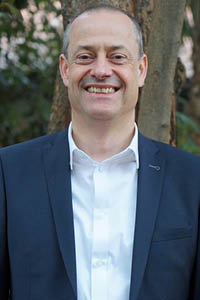
Isenbeck, Jörg
Principal@germanschool.co.ke
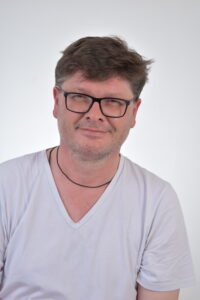
Klare, Andreas
Andreas.Klare@germanschool.co.ke
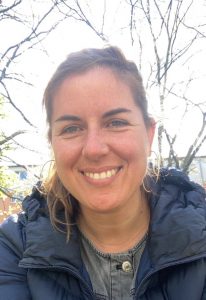
Kroeger, Maria
Maria.Kroeger@germanschool.co.ke
Curriculum
| Subject | Class | Download |
|---|---|---|
| Biology | 5 | |
| Biology | 6 | |
| Biology | 7 | |
| Biology | 8 | |
| Biology | 9 | |
| Biology | 10 | |
| Biology | 5 | |
| Chemistry | 7-10 | |
| Chemistry | 11-12 | |
| German | 5 | |
| German | 6 | |
| German | 7 | |
| German | 8 | |
| German | 9 | |
| German | 10-12 | |
| English | 5 | |
| English | 6 | |
| English | 7 | |
| English | 9 | |
| English | 10 | |
| Differentiating English concept | 11-12 | |
| Geography | 6 | |
| Geography | 7 | |
| Geography | 8 | |
| Geography | 9 | |
| Geography | 10-12 | |
| Ethics | 5-12 | |
| French | 6-10 | |
| French | 10-12 | |
| History | 5 | |
| History | 6 | |
| History | 7 | |
| History | 8 | |
| History | 9-10 | |
| History | 11-12 | |
| Art | 5-6 | |
| Art | 7-9 | |
| Art | 10-12 | |
| Mathematics | 5-10 | |
| Mathematics | 11-12 | |
| Physics | 7-10 | |
| Physics | 11-12 | |
| Religion | ||
| Sports | 5-12 |
Schedule and program
At around 7.30am, the yellow school buses roll into the yard, the students fetch their materials from their lockers and at 7.45am the lessons begin. With the 2019/20 school year, we introduced the subject room principle from grade 6 so that students change classrooms and bring their lesson materials with them. Adding a rhythm to the school day is important to us, so that there is a 20-minute breakfast break and a lunch break from 1.05pm to 2pm. In this time, the students have a warm lunch in the cafeteria, play football or basketball, listen to music, visit the library or enjoy a trip to the Village Market (from grade 7). Lessons generally end at 3.30pm, or 3pm on a Friday. Afterwards, there is a wide variety of clubs. The buses leave the school grounds at 3.45pm and 5pm.
Schedule
| Time | Content |
|---|---|
| 7.45am – 1.05pm | Lessons (1st - 6th hour) |
| 1.05pm – 2pm | Afternoon Break |
| 2pm - 3.30pm | Lessons (7th - 8th hour), homework supervision or clubs |
Program
| Class | 5 | 6 | 7 | 8 | 9 | 10 | 11 | 12 |
|---|---|---|---|---|---|---|---|---|
| Biology | 2 | 2 | 2 | 2 | 2 | 3 | 3 | 3 |
| Chemistry | 2 | 2 | 2 | 3 | 3 | 3 | ||
| German (or DaF) | 6 | 6 | 4 | 4 | 4 | 4 | 4 | 4 |
| English (or: EaF/EaM) | 4 | 4 | 4 | 4 | 4 | 4 | 4 | 4 |
| Geography | 0 | 1 | 1 | 2 | 2 | 3 | 3 | 3 |
| Ethik / Religion | 1 | 1 | 1 | 1 | 1 | 2 | 2 | 2 |
| French | 4 | 4 | 4 | 4 | 3 | 3 | 3 | |
| History | 1 | 2 | 2 | 2 | 3 | 3 | 3 | |
| Class Hour | 1 | 1 | 1 | 1 | 0 | |||
| Art | 2 | 2 | 1 | 1 | 2 | 2 | 2 | 2 |
| Mathematics | 5 | 4 | 5 | 4 | 4 | 5 | 5 | 5 |
| Music | 2 | 2 | 2 | 1 | 1 | 2 | 2 | 2 |
| Physics | 2 | 2 | 2 | 3 | 3 | 3 | ||
| Social Studies | 2 | 2 | ||||||
| Sports | 2 | 2 | 2 | 2 | 2 | 2 | 3 | 3 |
| Work Study/IT | - | 1 | 4 | 4 | 4 | 3 | - | - |
What guides us
Our vision
The German School Nairobi prepares its students for the challenges of the future.
Our mission
In an intercultural atmosphere, we convey democratic values, social skills and education to a high level, which considers the individual and promotes the community.
Our mission statement
The German School Nairobi is a German-speaking international school supported by public funds from the Federal Republic of Germany, which teaches for the Abitur and feels obliged to have an intensive cultural exchange with the host country of Kenya.
The school is a vibrant centre of German culture. It passes on the German language and educational content from the German-speaking realm. Children of parents, who live permanently or temporarily in Central and East Africa, are offered a schooling, which enables them to later be integrated into the German school system, transfer to other German international schools and German or international universities. Framework conditions like teaching plans, promotion regulations and school leaving certificates correspond to the German school system and guarantee a sound general education.
In lessons, as well as in extracurricular activities, the students develop technical, social and methodological skills through the independent design of the learning processes. This way they can mature to have responsible and self-aware personalities.
Through various cultural and societal activities, the German School Nairobi fulfils their cultural remit and thus also acts as a cultural centre for the German community. Furthermore, the school acts as a mediator between German and Kenyan culture and thus fulfils its role as an international meeting place.
The collaboration of all the members of the school community - students, parents and educational and non-educational staff - is characterised by an openness to dialogue, tolerance and mutual respect. The implementation of the mission statement is made concrete in the school programme and is regularly evaluated for quality.
You can download the full mission statement of the German School Nairobi here:
Our school program
The German School Nairobi operates a school program, to implement the ideas of the mission statement step by step in reality. The school program makes the goals for the school’s development transparent and assessable. It includes program points, which are already a fixed component of the school culture, and program points, which are being developed through current plans as well as thoughts for evaluation. It is structured in sections, which are taken from the mission statement of the German School Nairobi.
The school program is updated and changed when needed. The current version is dated from October 2020 and can be downloaded here:
Textbook Lending System - Lower and Upper Secondary
Who can take part in the Textbook Lending System?
The system is available to students from Classes 5 - 12. No student is obliged to participate in this system.
How does this system work?
A list of the books which are compulsory for each class for the academic year is available in our download section just below on this page.
From this list you can see what books and materials can be borrowed from the school (marked L), and which ones are available only for sale (marked V).
Students who have registered for the textbook lending system (with parental signature) will receive the set of required textbooks in the first week of school. This packet can only be borrowed as a complete set. Students cannot borrow individual books from the packet.
School materials and books marked with the letter "L" can be borrowed under this system. Other books required in the class, such as work books, atlases, formula booklets etc. will be marked "V" and will be available on sale at the school during the first few weeks.
In order to prevent unnecessary exchanges, please discuss with your child which books s/he needs to buy (not borrow!) before the beginning of the academic year.
Please note that books marked with an "L" will no longer be sold (new or used) at all at the GSN.
What happens if a book is damaged or lost?
Each book in the lending system is meant for only one student, and this student is responsible for returning his / her book undamaged and in a good condition. Students may not mark the book in any way (including underlining, comments in margins etc.) If a book is damaged in any way, or if it is lost, the student will be obliged to pay fee to replace the book.
In order to prevent damages, all students are required to cover their textbooks. Students must cover the books within the first two weeks of school. If this is not done, the class teachers will take the book away from the student after the end of the second week. Students will then be obliged to bring a cover to school and cover the book in class, before getting the book back.
The books will be re-collected as a complete set towards the end of the academic year. Should the student not be able to return the book on the day assigned, two further return dates will be proposed.
If the books are not returned by the last date given, they will be considered lost, and will be charged for.
The school reserves the right to check the books when they are returned, and to reject any books considered too damaged to be re-used. Such books will be charged for.
Downloads
School Development
The school is subject to changes and must constantly develop and check what works or where there is potential for improvement. The focuses for the development are set by the school itself, but refer to internal and external evaluations. As well as the results of competence tests and examinations, the internal feedack includes regular satisfaction surveys of all those involved in the school community.
In a three-year cycle, the German School’s work is checked and evaluated by the Central Office for International School Matters in an interim inspection and a Federal States Inspection. In the years 2010 and 2016, the school was awarded the seal of approval “Excellent German International School”. But there is always more that can be done to ensure the steps of school development have met their overall goals in the school programme, which is made concrete in an action plan for a period of three years. To coordinate the implementation of this action plan, a school development group was founded in the 2019/20 school year.
Current fields of work of school development at the DSN
Action Plan
Action plan of the school development work concerning the fields of work "digitalisation", "personalised learning" and "increasing competences in the field of German".
Action Plan (Status 2021)
Anti-Discrimination
In December 2021, the DSN conducted a survey in the school community asking about personal experiences of discrimination in the school environment and structural discrimination in the system.
These questions are very interesting and important, especially in a school like ours. And as expected, there are also areas in our school where we need to improve. The first steps we are currently working on in different groups are the examination of appropriate payment for staff, the introduction of the position of an “entrusted person” and workshop days around the topic of discrimination for the whole school community. Further steps will follow.
Digitalisation
A Chinese proverb says "When the wind blows, some build walls and others windmills"... It is hard to imagine our everyday life without the rapid digital advances in the world, and they do not leave the cosmos of school without a trace. In order to enable students to participate in digital life and to strengthen their media competence, the DSN has set itself the goal of not excluding digitization from the school with insurmountable walls, but rather to give it space and to build "windmills of digitization" where they can facilitate students' acquisition of this key competence and strengthen them in their learning process. As a school, it is our desire to support our students on their way into a world in which digitization will take up more and more space, while still making them aware of this topic as well. We hope that we can thus give our students wind beneath their digital wings.
Media concept (Status 2023)
Differentiation
Differentiation is an important tool at all schools to support students in their learning process in the best possible way. At the DSN, we teach young people at different levels and with different language skills, which makes internal differentiation essential.
On February 6, 2023, we organized a study day with the staff of the elementary and secondary school and work specifically on the topic of "Internal Differentiation at the DSN".
Continuous German Concept
Our learners are exposed to several breaks in their school career. For example, the transition from kindergarten or the transition to DaM instruction in grade 8 represents such a break. The task of continuous language education is to support our learners in their entire educational career, but especially in these phases. In the context of DSN, this refers to the goals of the Action Plan 2021/22, which resulted from the Education Report 2019: We support all learners together and in the best possible way in the acquisition of the German language.
Continuous German Concept (Status 2023)
Homework as schoolwork
What if there were no more homework, but all exercises were schoolwork?
Some of the pupils at the DSN have long school days and long ways to school. As a result, some of them sit up until late in the evening working on their homework for the coming days. In our diverse student body, not everyone can get support at home from native German speakers if they have problems with their German homework.
In order to compensate for the disadvantages that arise, we at the DSN move homework into school time and the teachers, tutors and peers can advise and support in completing the tasks. And all adolescents get enough rest after an already long school day.
New Format “Atelier”
For the school year 2022/2023 we have introduced a new format at the DSN, the Atelier.
Twice a week, once in the morning and once after lunch, the pupils work on project-oriented topics, some of which are not part of the traditional school curriculum but are important for their future lives. The Atelier breaks up the usual classroom settings, encourages independent, free project learning and teaches completely new skills, for example, building a compost toilet in the school garden, writing and staging their own poetry slam or play, or building and programming robots.
The Atelier is seen as a learning space in which achievements are recorded in a competency grid and not in grades. At the end of the semester, the students choose two new Atelier activities.
The latest contributions to the ateliers are available here.
Unfortunately we couldn't find any posts. Please try it again.
Quality Framework German School Abroad
Quality Management of German Schools Abroad
The establishment of quality management for German Schools Abroad (DAS)
looks back on a history of more than 14 years. The ultimate reference point of school quality management is the assurance and improvement of teaching quality (Rolff); this in turn is part of teaching development within the framework of school development. At the center of all quality development and quality assurance efforts, therefore, is ultimately
School Quality Management Abroad (Status 2018)
Balance Report
• Improving the quality of lessons
• Improving the school infrastructure
• Sustainability of school development
• Increasing skills in the area of German
There is no great need for improvement in any of these areas, individual points need further work but most criteria are either partially or fully met. The latter applies especially to the improvement of the quality of lessons and the school infrastructure.
As well as the recommendations for further work, Mr Peleikis came to the following conclusion, which is a recognition of all of our work and a commendation we can be proud of: the discussions, lesson visits, observations and impressions over the course of the three-day interim inspection - from the viewpoint of the regional officer - show an overall engaged and successful job done by the school and proper use of the funds. The school’s continued eligibility for funds was granted. The discussions held show that the professional work of the headteacher and the board over the last two years has brought new life to the school.
You can find an overview of the results here:
Ergebnisse Balance Report (Status 2019)
Peer Review 2022
In November 2022, two colleagues from the Christopherus School Rostock visited us for a peer review as part of the Excellence Initiative of the German School Award of the Bosch Foundation. A peer review is feedback from "critical friends" on two observation questions that you as a school give to the peers. The DSN staff chose the questions "To what extent is cooperative learning implemented at the DSN?" and "Does the use of digital media support the learning processes of the pupils?
The peer review lasted a total of four days. On the first day, the peers got to know the school and the staff, on days 2 and 3 they observed lessons and conducted interviews and a rating conference, and on the fourth day they gave us detailed feedback on their observations.
Encouragingly, the feedback was that much is going very well, cooperative learning and the use of digital media is observed and supports learning. However, our critical friends also told us that we can still work more on our variety of methods, both in cooperative learning and in the use of digital media. We take this feedback to heart, train ourselves in "stand-up" trainings, share best practice examples and remember methods that have already been introduced.
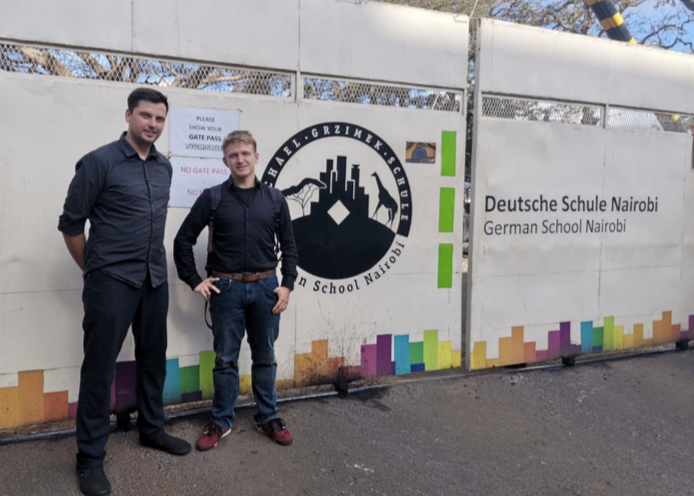
Peer Review (Status 2022)
We abide by rules
At the German School Nairobi, it is important to us that we interact with one another with respect and consideration. Shared rules, which are binding, help colleagues, parents and students to orient themselves. To ensure that they are lived and recognised in the school community, it is important to us to draft them together and to explain them to all members of the school community and make them accessible. For example, this is done on parent’s evenings, in the student parliament, the mini school assembly and of course the introduction days and form time or here on the website.
And it is important that we pay attention to one another but also to our school. All students are thus regularly reminded of the applicable rules. If there are still any difficulties, the school social worker will also be happy to help further.
| Rule set | Description | Download |
|---|---|---|
| School Rules | These are the School Regulations for the German School Nairobi | |
| School policy | The school policy was drawn up by students, teachers and parents together. It establishes the principles for the shared experience of the school community and defines the responsibilities of the students, teachers and parents. | |
| Classwork Rules | Internal Regulations for Written Assessments and Grading at the German School Nairobi | |
| Rule booklet SEK I + II | The rule booklet for the students, parents and teachers of the mid and upper level. | |
| Bus rules | The rules for using the school bus. |
Complaint Management
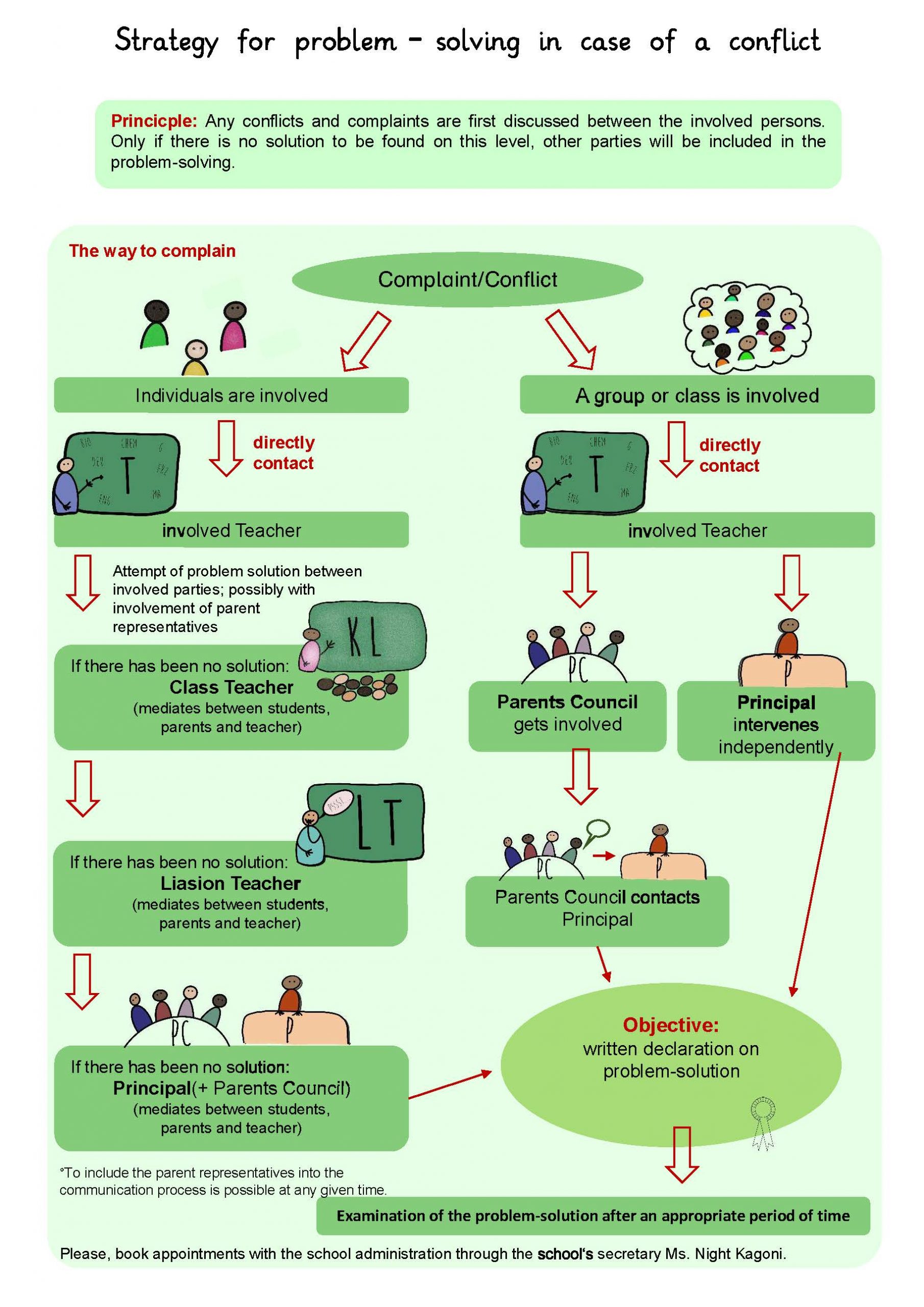
School social work
The school social work provisions are varied and are provided first and foremost to the students of the DSN. But parents and other people associated with the school are welcome to turn to the school social worker if they have familial, social, emotional and psychological problems or questions. Of course, we do not just apply reactive forms of social work, but far more the work involves preventative measures.
A main focus of the social work at the DSN is directed towards the question of how we can promote an appropriate social community spirit in class and on the schoolyard. The students learn social rules in primary school through play and as school goes on this is continued through the Lions Quest social training programme. This also includes promoting an amicable communication culture. The social worker is supported in this by the trained student mediators.
In games at break time too, social responsibility can be put into practice, so the children are offered a targeted range of options at break times. An area of this is the establishment of an educationally supervised lunch table during lunch break.
Beyond the preventative aspects, individual advice is an important cornerstone of the social work. The students of all ages have the opportunity to confide in the social worker confidentially and talk about their worries, problems and disagreements. The fundamental approach for this is solution and resource-based orientation. This also applies to dealing with bullying.
A significant intersection for school social work is the special needs support, in particular, the two disciplines work hand in hand for inclusion and the celebration of diversity in the school. Other cooperations, including beyond the limits of the school, relate to child protection and psychological services.
The social worker team
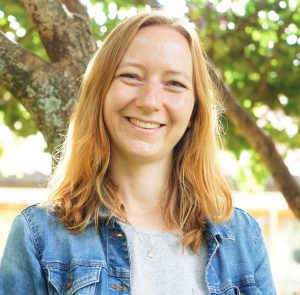
Krohmer, Kerstin
Office hours
For students
Office hours are Monday to Thursday from 8:00 am to 3:30 pm and Friday from 8:00 am to 1:00 pm.
For parents
Contakt: kerstin.krohmer@germanschool.co.ke
Learning social skills through play
“Becoming an adult” (Lions Quest) is a programme, which is meant to support students by strengthening their social skills and thus prepare them to independently handle the tasks ahead of them in the phases of their life. It is important to us that our students develop a way of interacting with one another that is amicable, fair and authentic. To do this, they must be able to understand, be aware of and respect both their own needs and those of others. Interpersonal conflicts are normal and are a part of life - however, it is important to us that these are resolved peacefully and constructively.
To support these abilities in the students in a targeted way, we emphasise the topic of “social learning” at our school. The focus of the “Becoming an adult” teaching is to methodically promote the students’ social skills. They are sustainably supported to strengthen their self-confidence and communicational skills, develop and maintain contacts and positive relationships, handle conflict and risk situations in their day to day lives appropriately and to find constructive solutions to problems, which often come with puberty. At the same time, the teaching on this programme aims to offer the young people orientation in developing their own socially integrated value system. Since the 2010/2011 school year, “social learning” has been taught in grades 5 to 8 by the class team of each class in close consultation and in coordination with the class teacher.
On the way to inclusion - Special education at the GSN
The special needs support at the DSN consists of 3 important areas: Diagnostics, Advice and Support. It is important to grasp the level of learning in order to provide adequate support. Advising of students, parents and educators is provided by the support worker. The individual support is determined by the needs and interests of the children.
Diagnostics
We need a careful diagnostic process to determine the child’s precise level of learning and thus provide the (special educational) support they need. Diagnostics include discussions with educators, parents and children/young people, observations in lessons and, where appropriate, testing. Tests can include, among others, spelling, reading or arithmetic tests, tests of concentration, intelligence, auditory or visual perception, motor skills or emotional and social skills.
Advice
Advice is provided by the special educator, who can advise students, educators and parents. This always relates to finding good conditions and support measures to support the child optimally. Advice also includes training colleagues in the area of inclusive education.
Support
Support can be provided as individual support, in small groups or together as a class. Here, the relevant learning objectives and support focusses are concentrated on. To support the children and young people individually and intensively, it is very important to build a relationship, a positive learning environment and clear, ritualised structures and continuity. Each child and each young person at the DSN, from nursery to secondary school, has a right to individual support. Individual support means increasing the current level of development and then assessing precisely where the child is now. We determine what the next step for development is and what is required to enable the child to successfully take this step.
Children with established special needs, children with a specific learning disability (such as reading and spelling difficulties or arithmetic difficulties), children with an attention disorder (AD(H)D), children with an articulation disorder, delayed development, learning difficulties or blockages, anomalies in emotional development or in social behaviour etc. require particular support. But children who temporarily need help or children who are particularly gifted can also benefit from individual support
Bullying at School
Regardless of the type of school or grade level, bullying can happen in any class. It is not a short-term conflict between students. Rather, a single student or even an entire group repeatedly harasses a child over a long period of time.
As a school, we take bullying seriously and want to act quickly and effectively. We have therefore decided to work with the No Blame Approach. This approach, which does not involve blame or punishment, has proven to be a very successful tool in combating bullying.
More information on the topic and our approach can be found in the brochure below.
If you suspect that there is bullying in your child's class, please speak to the class teacher or the school social worker.
Concept of study and career guidance at the German School Nairobi
It is important to us that our students are empowered to make self-determined and competent career and study decisions. Only those who have concrete ideas about their future life, know their strengths and weaknesses, can assess their abilities, are informed about training and study opportunities and have had experience in the world of work can be in a position to do so.
The German School Nairobi therefore offers various career guidance events, which are explained below.
The current counseling and preparation concept is based on 3 pillars:
- enabling practical experience in the world of work
- information and advice events
- individual advice on study and career prospects
Here is a selection of the central events by year:
| Class | Event | Description |
|---|---|---|
| 5+6 | Careers taster day (1 day) | Pupils in years 5 and 6 should be given the opportunity to gain an insight into the everyday working life of their parents or relatives. |
| 7+8 | Company tour (1 day) | Years 7 and 8 have the opportunity to gain an insight into the structure of a company and the occupational groups and work processes represented in it as part of a company tour. |
| 9 | Work placement (2 weeks) | To give our students an early insight into the world of work and business, they complete a work placement in year 9. This gives them the opportunity to get to know a specific occupational field and its work processes. For our Hauptschule and Realschule pupils, vocational orientation towards the end of their school career is a central focus of interest. The work placement is designed to support their career choice process. Pupils acquire knowledge about professions, occupational directions or occupational fields, gain a broader overview of possible professions, get to know different occupational requirement profiles, can become aware of their inclinations, interests and abilities and can check their suitability for their career aspirations in advance of their career choice through practical work. For our grammar school pupils, the work placement can also promote the ability to anchor their own learning work and school performance more clearly in the world in which they live and, as a consequence, strengthen their motivation for learning at school. In this way, the work placement should also encourage pupils to acquire the key qualifications that are essential for success in their studies and later professional life. |
| 10 | Community service hours (during the school year) | In order to encourage our students to become socially involved outside the classroom, to take on social responsibility and to gain experience in social occupational fields, the social hours in year 10 were carried out under the umbrella of study and career guidance and in cooperation with ethics / religion lessons. The aim is also to promote contact with people and their problems in the Nairobi environment. The students commit themselves to a minimum of 10 hours of community service (usually 10 to 20 hours), which are completed during the school year during non-teaching times and certified at the end of the school year. |
| 11 | Business internship (1 week) | The business internship in year 11 gives students an insight into the operational practice of larger companies and helps them to supplement their basic knowledge of the market economy from geography lessons with practical experience. They also learn to better assess the world of work through their own activities. The work placement can give a further significant boost to vocational orientation. A comprehensive report must be prepared for the work placement. It is included in the grade for geography. |
| 11 | Study trip to Germany (two weeks) | The trip is intended to prepare the students for studying, living and working in Germany. During their stay, the students should visit one or more universities (study advice, taster lecture). The students live with a German host family and take part in various cultural excursions and activities in addition to study and careers advice, which they will prepare themselves in advance in lessons at the DSN. If possible, career counseling will take place at the employment agency. |
Contact study and career guidance
Alena Burmeister
alena.burmeister@germanschool.co.ke
Applying and Information
Background
The scholarship program at the German School Nairobi was established in February 2008. The program has two main goals:
-
To provide deserving students from our host country, Kenya, with access to a first-class education
-
To offer students who successfully complete their final examinations, known as the DIA (Deutsche Internationale Abiturprüfung – the equivalent of the IB or A-Levels in Grade 12), the opportunity to continue their tertiary education in Germany. The DIA is an internationally recognized qualification and is accepted in all EU and non-EU countries (including the USA) as well as at the University of Nairobi.
The number of scholarships awarded each year depends on:
-
The quality and individual circumstances of the applicants
-
The availability of funds in the school budget
Eligibility
Students aged 9–10 years* who are currently in Class 4 (or students in the British system who have completed Class 4) are eligible to apply for a scholarship. *Applications from students aged 10–11 years will also be considered.
Types of scholarship and fee structure
All scholarships are awarded based on academic performance. Successful applicants will benefit from a 75% reduction in tuition fees. Lunch is included in the tuition fee, but transport costs (if required) are not covered.
Please note that there may be an annual tuition increase of 5–7%, which also applies to all scholarship holders during their studies at the German School Nairobi.
How do I apply?
Application period:
September 1 – September 28, 2025
Please complete the application form and combine it with ALL required scanned documents into a single PDF, then send it to:
Email: scholarship@germanschool.co.ke
Alternatively, you may submit your printed and signed hard copies to:
German School Nairobi
Scholarship Application
P.O. Box 978
00621 Nairobi
Requirements: Please submit the following documents together with the application form:
- Colour passport-sized photograph of the student
- Copies of school certificates for the last 2 academic years
- Copy of birth certificate or copy of passport
- Copy of the parent's identification documents
- Payslips of the past 6 months
- Certified bank statements covering the last 12 months
Important: Applications that are incomplete or missing any required documents cannot be processed.
Selection Process
All applications received within the deadline will be reviewed by the Scholarship Committee. Only candidates deemed suitable will be invited for interviews and tests in October/November, after which the successful candidates will be notified accordingly. The school’s decision on each application is final and not subject to appeal.
Assistance
Language Development:
The school offers the students on our scholarship programme an intensive course in German as a foreign language. The intensive course lasts six months and includes around 20 hours of German per week. The students also participate in Mathematics, Physical education and Art with their peers from grade 4. The goal of the intensive course is to enable the students to join the regular teaching in grade 5 when the new school year begins in August. Furthermore, they receive additional German language lessons for at least a further three years so that they can gradually attain the same level as the native speakers.
Extension of the academic scholarship:
Scholarship holders must fulfil certain requirements, which are described in the document Conditions for scholarship holders.
Work is still going on here ...

Work is still going on here ...

As an intern in the DSN Kindergarten?
-
- Interns in our Kindergarten must be at least in training to be a Kindergarten teacher, better still if they have already completed at least the first part of this training. Interns (from Germany) can come to Nairobi with a holiday visa. It allows them to work as an intern at a school for up to 6 months.
- The work as an intern at the DSN is unpaid. The school can help with organization but not with financing to acquire accommodation in Nairobi. It cannot provide any support for the cost of living. There may be the opportunity to stay with host families.
- Working as an intern at the DSN is not a component of formal training. Interns receive a certificate for the completion of the internship after it has finished.
- Applicants should have very good German and English language skills.
What can you expect from an internship at the DSN?
- Comprehensive experience in all aspects of work in a foreign school
- Instruction and supervision by a mentor
- Friendly reception in an open and helpful staff
- Work in an international school community, intercultural experiences, learning about Kenyan culture and lifestyle
- Work in a modern school building in scenic surroundings
- Learning how to work in an excellent German international school with the seal of approval of the Federal Republic of Germany
What do I need to be aware of?
- You should make all travel preparations in good time (valid passport and visa; foreign accident, health and liability insurance).
- The entry visa must be applied for online in advance.
- Find out about healthcare and vaccinations at a health authority or a tropical institute in good time.
Contact partner:
-
The contact partner is the Head of Kindergarten, Nora Olbert.
Internship in the Primary school and in Secondary school sections I and II
An internship at the German School Nairobi offers you the opportunity to implement the content of your studies in practice. You also get to know day to day life at a German international school and can spend you free time exploring Kenya. Interns should be present in lessons for at least 23 teaching hours per week. The number of hours they teach themselves is arranged with the subject teacher.
All students, who have successfully passed the interim examination (i.e. from the 3rd semester) may apply. An application before this is therefore not appropriate, as interns must have a professional background in education.
Students who are interested in applying should be informed of the following conditions in advance:
Start of internship:
- Time period: August/ September
- Time period: January/ February
- Time period: March/ April
Internship duration:
3 to 6 months
Application Deadline:
We accept applications at any time. The application should be sent by email with a reference to the time period in the subject line (e.g., Application for an internship in August 2024) to praktikumsbetreuung@germanschool.co.ke.
Number of internship places:
The DSN generally awards two places in the primary school and two in the secondary section per period.
Costs:
The internship at the DSN is unpaid. The school can support you with organisation but not with financing. It is possible for you to stay in the intern house on school property free of charge.
Language skills:
Applicants should have very good German and English language skills.
If the German School Nairobi has sparked your interest, please submit the following documents for an application:
- CV in table form with photograph
- Cover letter, which indicates which teaching post you are studying to hold, which subjects you wish to teach and which period the application relates to
- Matriculation certificate
- Proof of having passed the interim examination or similar
- Copy of identity card or passport
Please attach your documents as PDF files if possible and do not exceed the maximum size of 2 MB.
Please send your full application to: praktikumsbetreuung@germanschool.co.ke. The internship supervisor Friederike Hönig is also available should you have further questions.
The successful candidates make their own travel arrangements:
- Healthcare and vaccinations at a health authority or tropical institute in good time (proof of foreign health and accident insurance must be presented before the internship)
- The entry visa must be applied for online in advance.
The German School Nairobi also offers internship places for volunteers as part of the Kulturweit programme from the Foreign Office. You can find more information at www.kulturweit.de. There are also internship places in the nursery at the German School.
Internship Report Julie Pantel
Internship Report Simon Klingberg
Experience Report Max Karger
Experience reports
Should I take on an internship at the German School Nairobi? What awaits me there? Is Kenya the right country for a 3-month stay? Where will I live in this time? How will I be received at the school?
You can find the answers to these questions and others in the experience reports of former interns.
Unfortunately we couldn't find any posts. Please try it again.



